In our busy modern lives, it’s not uncommon to cut corners in our nighttime skincare routine. One of those corners is falling asleep before removing our full face of makeup. While it might seem harmless to leave a layer of foundation or mascara on overnight, the consequences can be more than just cosmetic. Join me on a journey into the overlooked world of what really happens when you sleep with your makeup on, as we take a deeper look into what unfolds beneath the surface.
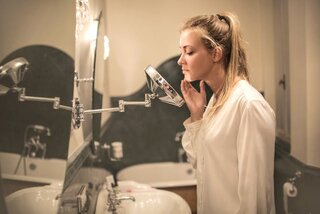
Sleeping with makeup on can have negative effects on the skin. It can clog pores, which can lead to acne breakouts and skin irritation. When pores are clogged, it becomes difficult for the skin to breathe and get rid of toxins, resulting in inflammation and potential skin issues. Plus, leaving makeup on overnight can interfere with the skin’s natural renewal process, affecting its ability to regenerate and causing dullness and uneven texture, contributing to premature aging.
Let’s Break it Down…
Mascara Mayhem:
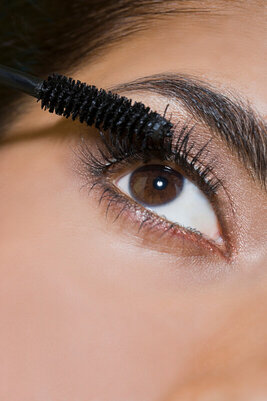
Let’s start with the windows to the soul – our eyes. Mascara, that magic wand that transforms our lashes to magnificent lengths, can quickly turn into an enemy when left on overnight. As you sleep, the mascara can flake off, leading to eye irritation and potential damage to your delicate eye area. Scientifically speaking, the friction between your lashes and the pillow can break down the mascara particles, causing them to enter your eyes and potentially leading to inflammation. The result? Puffy, itchy eyes that not even the strongest coffee can wake up. On top of that, it may cause lashes to become brittle, more prone to breakage, and poor eye and lash health in general, potentially leading to an eye infection.
Face:
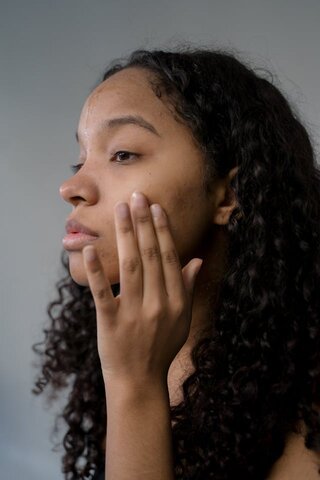
Now, onto the canvas of your face – your skin. Leaving foundation, concealer, or other skin products on overnight creates a breeding ground for bacteria. As these products mix with the oils and sweat produced by your skin during the night, pores become clogged, setting the stage for breakouts and acne. Scientifically, this happens because makeup obstructs the natural exfoliation process, preventing dead skin cells from naturally falling off and leading to the formation of blackheads and whiteheads. This can result in dull skin and disrupt the skin’s natural shedding process, which is important for the cell turnover.
Lipstick Lockdown:
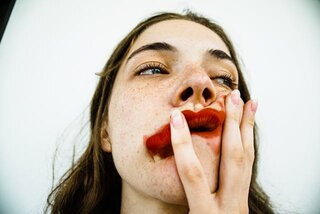
Your lips, often the finishing touch to your daily makeup routine, also suffer when neglected at bedtime. Lipstick, gloss, or any lip product left on overnight can cause dryness and chapping. Scientifically, the skin on your lips is thinner and more delicate than the skin on the rest of your face. Overnight, the lipstick acts as a barrier, preventing your lips from naturally hydrating themselves, leading to a dehydrated lips come next morning.
The Damage Clock: How Long Does It Last?

The duration of the damage caused by sleeping with makeup on varies depending on the individual and how often it is done. In general, the immediate effects—redness, puffiness, and irritation—may last a day or two, but repeated instances can lead to increased damage over time.
Short-Term Effects:

- Increased risk of bacterial infections
- Skin dehydration and dryness
- Clogged pores and breakouts
- Eye irritation and redness
Long-Term Effects:
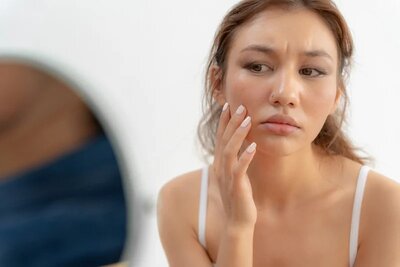
- Premature aging due to collagen breakdown
- Increased susceptibility to fine lines and wrinkles
- Persistent skin sensitivity
- Heightened risk of developing chronic skin conditions
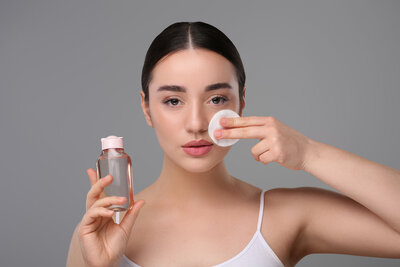
In conclusion, the seemingly harmless act of sleeping with makeup on can have significant consequences on your skin’s health and appearance. Embracing a consistent skincare routine and taking those few extra minutes to cleanse with a gentle cleanser or micellar water before bedtime can make a world of difference in the long run. Remember, your skin is a canvas that deserves care and attention – even when the lights go out. So, say bye bye to the day’s makeup and let your skin breathe freely, ensuring that each night’s slumber is a step towards waking up with a radiant, refreshed complexion.



